Tyrone Grad Makes an Impact in Remote Alaskan Village
Tyrone Class of 2012 graduate Courtland Pannebaker was named the 2021 Alaska Head Start Teacher of the Year
For the past six years Tyrone alum Courtland Pannebaker has taught preschool to three to five year old native Yupik children in Gambell, Alaska; a place so remote that it is closer to Russia than it is to mainland Alaska.
The tiny village that Pannebaker currently calls home has less than 600 permanent residents, no trees, and is so far north daylight is rarely seen in the winter and darkness almost never falls in the summer.
It is a place where most teachers stay for only a year, if they even make it that long.
“Teachers have been known to step off the plane, look around and get back on,” said Pannebaker.
But something about the place, its culture, and especially its people, keeps Pannebaker coming back.
Pannebaker was recently honored for his service and talent as the 2021 Alaska State Head Start Teacher of the Year by the Alaska Head Start Association.
Growing up in Tyrone, Pannebaker was a rambunctious child with little time for school work or school rules.
“I got in a lot of trouble for goofy things, like the class-clown type of stuff,” said Pannebaker.
Pannebaker’s personality as a child didn’t seem like a great fit for a career in education, but thanks in part to Tyrone third-grade teacher James Koller, Pannebaker was inspired to love learning and decided to pursue a degree in early childhood education from Penn State.
“He showed me men can be elementary teachers. He was also able to have fun with us, and I wasn’t getting in trouble. He used my energy to an advantage, and I always wanted to be able to do that as well; to have fun while you’re learning,” said Pannebaker.
Koller saw a bit of himself in Pannebaker and took an instant liking to his most challenging student.
“Courtland was a very high-energy young man. He was constantly on the go and was at times very challenging. I had a very soft spot for him because he reminded me so much of myself, as I was the exact same type of student,” said Koller. “I remember working so hard to help him understand, way back in third grade, how the habits he was forming and the choices he was making were going to affect him as he got older.”
Koller is honored to have had an impact on Pannebaker and believes that the teaching profession deserves more people like him.
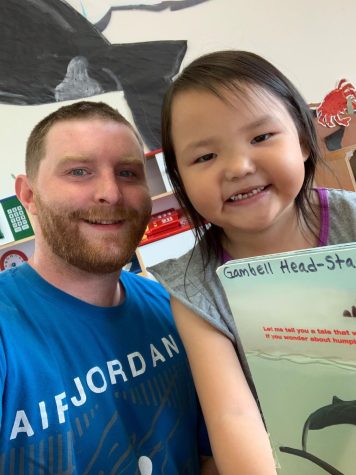
“I think it is amazing what he is doing with his students in Alaska. It took a great deal of courage to go somewhere so far away and so different from what Courtland is used to,” said Koller. “I was extremely proud of him when I first heard about his career choice. He was placed in Alaska for a reason, and I’m certain his students and families are better off for having him in their lives. I really admire what he is doing.”
While Koller helped his young student learn to make smarter choices, Pannebaker never lost his sense of adventure or wonder, which led him to his current job.
As Remote as Can Be
Gambell is one of two small villages on St. Lawrence Island in the Bering Sea. Located almost 200 miles east of mainland Alaska, it is only 36 miles from the Russian coast.
Pannebaker learned about teaching opportunities in Alaska back in central Pennsylvania, at a job fair at Penn State Altoona. On a whim, he interviewed with representatives of the Alaska school district and was offered a job within several days.
“I always had an interest in traveling, and Alaska was always one of those states where it’s just like ‘wow, I would love to end up in Alaska somehow,’” said Pannebaker.
Before accepting the job, school district officials warned Pannebaker that Gambell was not a “favorable location” for most teaching candidates and that teacher turnover on the island is high.
But that’s when the sense of adventure for the former boy scout and life-long outdoorsman kicked in. It was just what the then 22-year-old Pannebaker was looking for.
Getting There is an Adventure
Type directions to Gambell, AK from Pannebaker’s hometown of Tyrone, PA into Google Maps and this message appears: “Sorry, we could not calculate directions from Tyrone, Pennsylvania to Gambell, Alaska.”
The distance, as the crow flies, is 3,843 miles and the trip from central Pennsylvania takes at least two days.
Commercial flights only go as far as Nome, Alaska. From there, travelers to Gambell must book a private bush plane for the last leg of the trip. Crosswinds can make landings tricky on Gambell’s unpaved landing strip.
But Pannebaker was sold as soon as he landed on the island. He was immediately struck by just how different it is from central Pennsylvania.
There are no cars or paved roads on the island. People get around by boat, ATV, or on foot. The island is so remote that almost everything, including food, must be delivered by airplane.
There are no restaurants, theaters, or other modern conveniences. Fresh fruit and vegetables are a luxury that cannot often be purchased, and when available they are very expensive.
It’s light almost 24 hours a day in the summer, and in the winter it’s dark most of the day, with temperatures that can reach negative 60 degrees Farenheight with the wind chill.
But despite the challenges, Pannebaker has returned to Gambell each school year for the past six years.
Learning the Culture
Pannebaker’s students show up to his class eager not only to learn but also to see their beloved teacher. Some of that has to do with Pannebaker’s fun-loving personality, but it is also because of his respect and interest in their lives and their culture.
In a place where many people don’t trust outsiders and outsiders have a difficult time assimilating, Pannebaker earned the community’s trust by immersing himself in Yupik culture.
When he first arrived in the fall of 2015, instead of purchasing satellite television for entertainment like most of the non-native teachers, Pannebaker decided to devote as much of his free time as possible to being outside, learning the culture and their hunting, fishing, and native arts and crafts traditions.
“I’d rather be outside, experiencing the culture and hunting,” said Pannebaker.
According to Pannebaker, the community has been very accepting since day one.
Yupik elder Merle Apassingok agrees that Pannebaker has had a very positive impact on his students and the Gambell community.
“[Courtland] was interwoven into our community even in his first year. We could see him being one of us,” said Apassingok. “Usually, we know here in the community when people from the outside come in whether they engage us or not. He was very engaging, and that was good to know.”
The Apassingoks got to know Pannebaker because their grandchildren were students in Pannebaker’s classroom.
“We’re very grateful that he’s in our early childhood education program,” said Apassingok. “We’re also very happy that he’s finally being recognized. He should have been recognized in his first year.”
The enthusiasm the children show toward Pannebaker is obvious to everyone in the community.
“As soon as the students get to school, they run in yelling ‘Courtland! Courtland!’ They’re so excited to tell me what they did the day before,” said Pannebaker. “I’ve had students call me dad, grandma, and mom because I’m taking care of those needs when they’re not there. I guess I’m doing some motherly things every now and then, and fatherly-figure type things.”
Pennebaker is also involved with the older students as a coach for the high school cross country and biathlon teams. To compete against other schools, the students have to fly off of the island, which is something both Pannebaker and his student-athletes look forward to.
Pannebaker hopes his students will continue to succeed through education and educate others about their culture.
“I hope they continue to want to learn about their culture and continue to hunt. Not all students here want to leave, and that’s perfectly fine, but what I do want them to know is that education is important,” said Pannebaker.
Hunting and Fishing
Apassingok says that it is important to preserve the culture and believes that it is extremely important to educate children and others.
“Our culture is several thousand years old, and we were told that the creator reached down to the bottom of the sea, grabbed some stuff, and rang it out to create St. Lawrence Island,” said Apassingok.
One of the most important parts of Yupik culture is whale hunting.
Pannebaker grew up hunting in central Pennsylvania so he was very interested in learning the Yupik hunting and fishing techniques. He has been fortunate enough to be one of the few outsiders to be invited to participate in the Yupik hunts.
“It’s indescribable until you’re out there. There is fear, and you just have to override that,” said Pannebaker. “At that moment, fear will not help you. You have to be extremely dedicated to that task as long as you’re focused and prepared the fear kind of goes away. At that moment, it’s just excitement.”
One of the biggest events of the entire year is when a whale hunt is successful.
“If you land a whale in this village, it has a tremendous impact. Right away on the [radios] everyone is excited and calling around to families, and then people begin to get ready,” said Pannebaker.
It can take days to skin and process a whale and the entire community comes out to help, making sure that they use every part of the animals they harvest from the seas.
They turn the whale into food, fuel, and art. The village is well known for carvings made from whale bone and walrus ivory.
Culture is valued to the community of Gambell, and Pannebaker hopes his students will learn to honor it as their parents and grandparents have.
“I would really like our students to be able to educate the world on the benefits of living in a community like this and telling their traditions and culture,” said Pannebaker. “That’s one thing that we’re extremely lucky to have here, and we are losing things, which is really sad, but our community probably has more traditions than what a lot of the other communities have. We’ve been able to keep them and cherish them, and our school system supports that as well.”
Teaching on a remote island in Alaska definitely isn’t easy, but Pannebaker has managed to overcome the odds and become a valued member of the community.
“Everything I’ve worked for has really paid off, and I think I made a good career decision,” said Pannebaker. “It’s one of those things you never know, and I wanted to give back. I wanted a job where I could influence people.”

Alivia Anderson is a senior in her fourth and final year of Eagle Eye! When not at school or hanging out with friends, she's at the dance studio. Liv's...




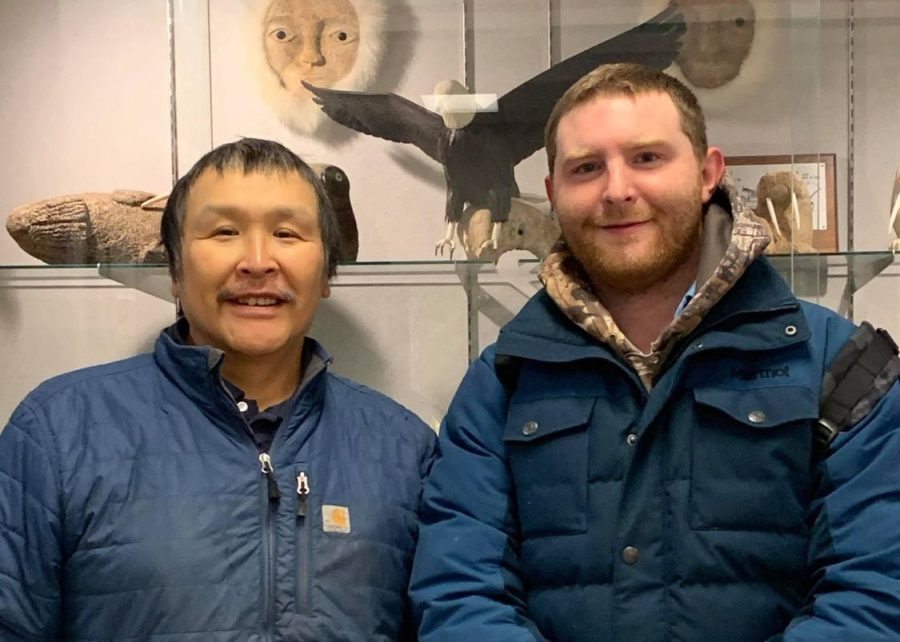
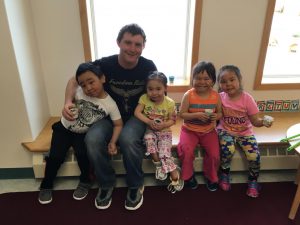
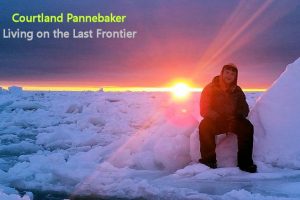
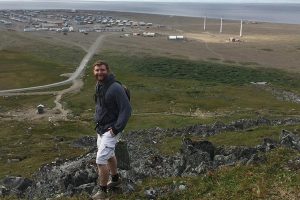
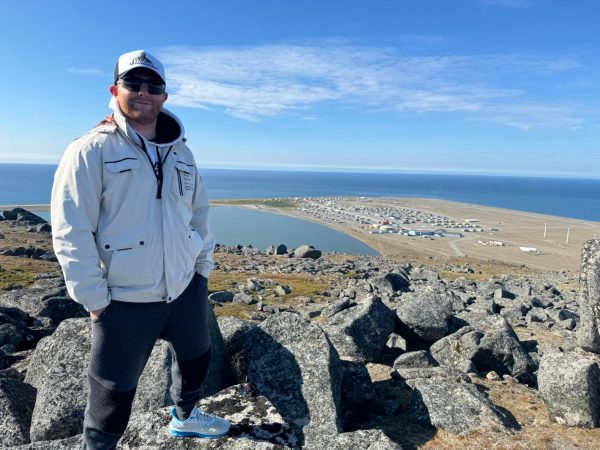
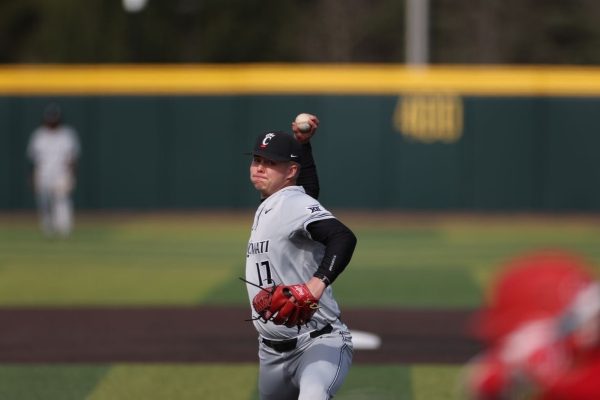
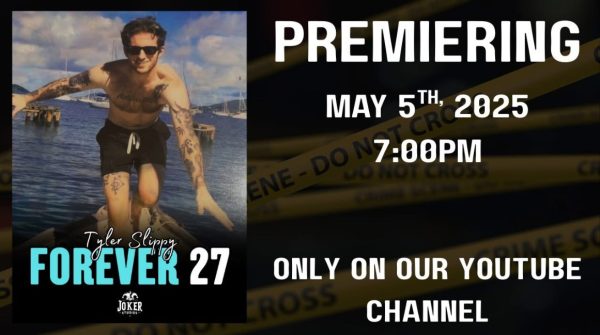
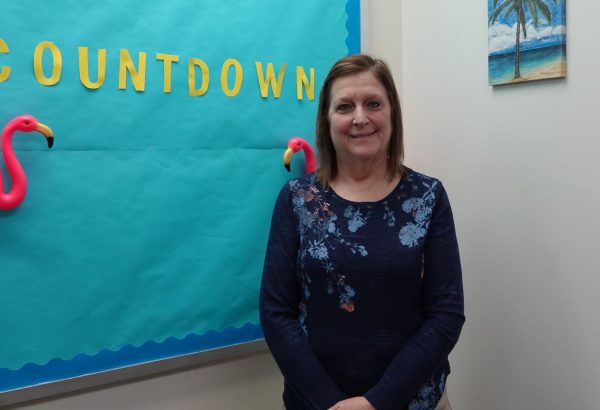
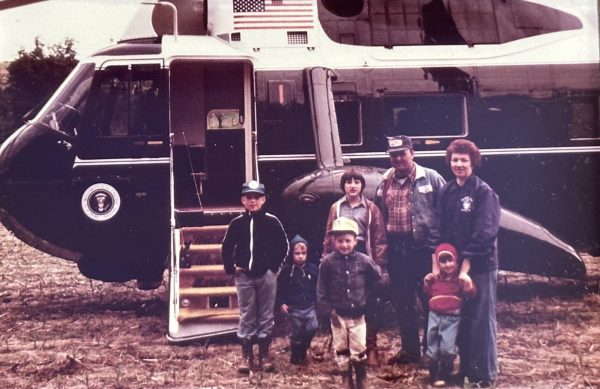

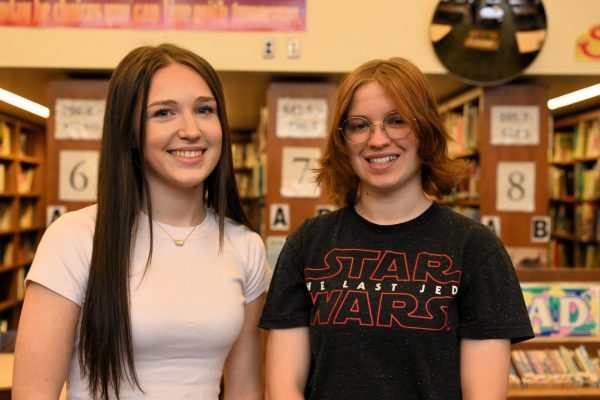

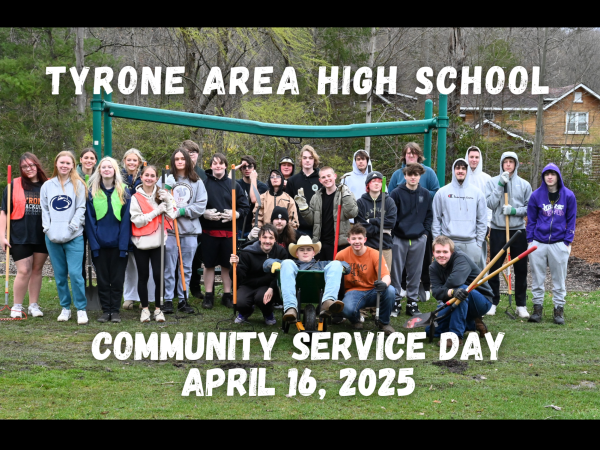
Courtland Pannebaker • Dec 15, 2021 at 4:25 pm
Thank you Alivia for the extremely well written article! You have received many great comments about how the article was presented from those here in Gambell.
NANCY BRUBAKER • Dec 14, 2021 at 3:10 pm
God bless you, young man! God is using you in a powerful way! I praya you teach them about their Creator and that they learn to love Him. Kudos for a job well done…continued! Merry Christmas from a former Tyrone, PA Alumnus…1966!!! XOXOXOXOXOXOXO